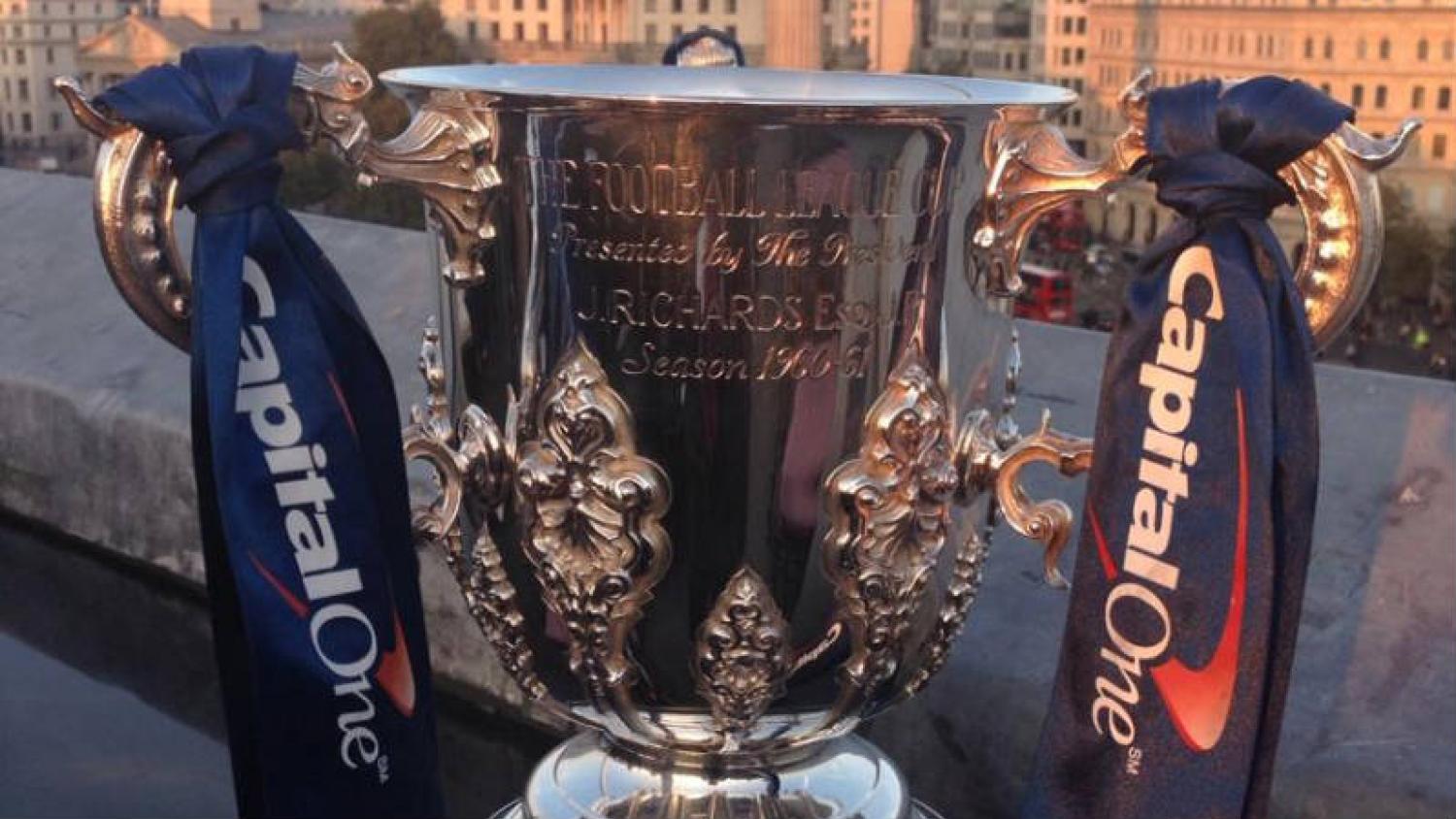Recent converts to the world of English football might have been puzzled this week when they noticed their beloved clubs had matches the last two days.
Upon closer review, new fans might have been even more confused about the opponents in these matches: “Who in the world is Sheffield Wednesday, why is Manchester City playing them, and what is the Capital One Cup?”
Welcome to the beauty of domestic tournament football.
What is the Capital One Cup?
Let’s start with the basics. The Capital One Cup (previously the Carling Cup) is the sponsor-centric name of the Football League Cup, one of the two major domestic football tournaments in England. Just like the more prestigious Football Association (FA) Cup, this tournament is single elimination, which helps to make up for the fact that there are no playoffs in the Premier League. All of the matches are single-legged (except for the semi-finals) and, if the score remains tied at the end of 90 minutes, the match goes into extra time (and if necessary, on to penalties).
Who plays in the Capital One Cup?
Unlike the FA Cup, in which 758 clubs entered in 2012-13, the Capital One Cup is only between the 92 clubs that are in the top 4 divisions of English football (Premier League, Championship, League One, League Two). Though this prevents the local pub teams from going up against Manchester United, there is still an obvious gulf between the sides in the Premier League and the Championship, let alone down to League Two.
And yet, much like the NCAA Men’s Basketball Tournament in the United States, such a disparity presents the opportunity for historic upsets. And, just like in the NCAA Tournament, the League Cup delivers on that promise. Back in 2012-13, League Two side Bradford City defeated Premier League sides Arsenal, Wigan, and Aston Villa, before finally succumbing in the final to Swansea City.
In this season’s edition alone, a (supposed) contender for the Premier League title has already been knocked out of the competition by a club from the lower levels, as Manchester United embarrassingly got dismantled 4-0 by MK Dons, a club from League One, in the second round.
The upsets continued this week, as Arsenal lost to Southampton (though, at least the Gunners lost to a team in the Premier League). The match of the week was Liverpool against Championship side Middlesbrough. Liverpool advanced, but only after surrendering an equalizer in stoppage time of regulation, and then winning the penalty shootout 14-13 (that’s not a misprint). For a recap and video of all the penalty shots, click here.
Should I care about the Capital One Cup?
Well, it is not always clear that the CLUBS care about this competition, as all of the top clubs field weaker sides than they do in league matches. Usually, this means playing just enough top players to ensure that the club wins, but no more than that (though as we’ve seen with Manchester United and nearly-Liverpool, that strategy does not always work).
The flip side to that is that fans are exposed to the bottom parts of the squad that they do not typically see on a weekly basis, most notably the younger players that make up the 25-man league roster, but are not typically available on the bench on match days. It is a good opportunity for those players to impress both the manager and the fans, who will inevitably start clamoring for them to play should the senior players ahead of them struggle.
Additionally, say what you will about how much it "matters," but it is still a chance for your club to win a trophy. Especially for fans of also-rans in the Premier League, the history of these cup competitions makes it clear that anyone can win them. Only one team will raise the trophy at the end of the Premier League season, but this tournament provides fans with the opportunity of seeing their favorite players jumping up and down on the podium in a sea of champagne.
The other unique aspect of the Capital One Cup (just like the FA Cup) is that the Premier League squads are forced to travel and play at the tiny stadiums of its lower-league opposition. The sight of seeing a giant like Liverpool playing in an arena that looks like a high school football stadium (and not one from Texas) is one of the unique quirks that the Capital One Cup provides as part of its enjoyment. Based on the draw for the next round that occurred last night, that very thing will happen, as Chelsea must travel to League Two side Shrewsbury Town in a fourth round tie.
Other notable matches in the fourth round include Manchester City-Newcastle, Liverpool-Swansea, and Tottenham against Brighton & Hove Albion F.C. (go Seagulls! No, seriously, that’s their mascot). The next set of matches is on October 28th & 29th on BEINSport. You’re now ready to watch and enjoy.
Follow Mike Smith on Twitter @thefootiegent
Be afraid of the mighty Shrewsbury, Chelsea…be very afraid.



